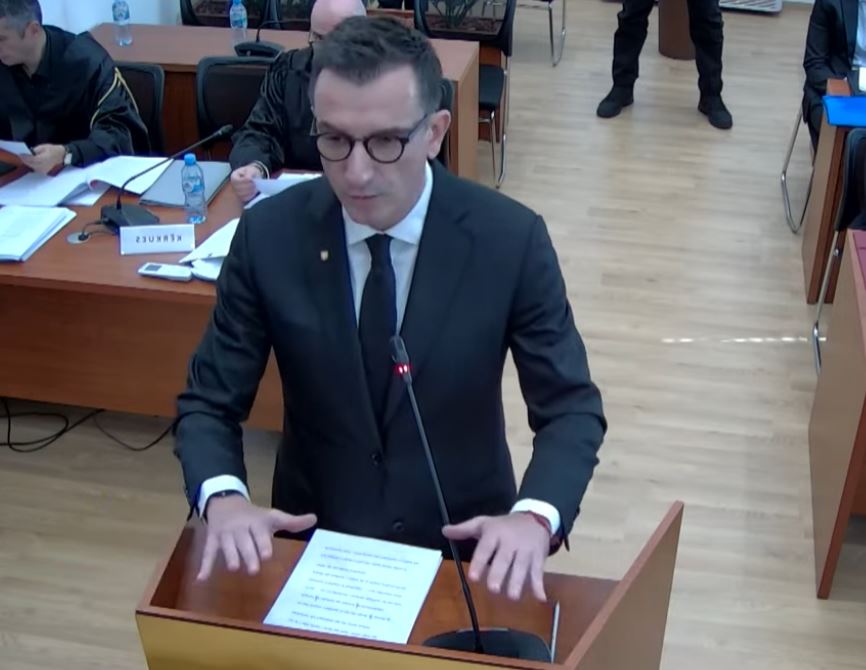Erion Veliaj appears in court for first time since arrest, calls dismissal a threat to democracy

Erion Veliaj appeared in public for the first time since his arrest on February 10 — this time in handcuffs. Escorted by heavy police presence, the former Tirana mayor was transported from the Durrës detention facility to the Constitutional Court in Tirana, where justices began reviewing two of his legal challenges: one against the government’s decision to dismiss him, and another against the president’s decree setting a new election date.
Why is this important: Veliaj’s case tests the balance between local elected mandates and central government power. He argues his removal violates the Constitution, which should override the local governance law used to justify his dismissal. His challenge, if upheld, could reshape how — and whether — mayors under investigation can be removed before a court ruling.
Context: Speaking in court after his legal team presented their arguments, Veliaj called it “the battle of my life,” insisting it was not about personal ambition but the foundation of democratic order. He said he felt “betrayed” by colleagues in his own party, who moved to dismiss him despite knowing the reasons for his three-month absence from duty.
Veliaj said his dismissal was politically motivated and warned the court against setting a dangerous precedent: removing elected officials without a final conviction. He framed his legal fight as one that would impact not only himself, but future mayors across Albania.
Government and presidential representatives argued that Veliaj’s appeal to the Constitutional Court was procedurally flawed, since his dismissal was not based on serious constitutional violations. They cited previous cases where the court had declined to review similar dismissals.
The Prime Minister’s office defended its decision, saying a city cannot function indefinitely under proxy leadership. Veliaj countered by pointing to two cases — in Tropoja and Rrogozhina — where mayors remained in office during legal proceedings, including one who continued in the role despite a conviction.
Reactions: Veliaj claimed Prime Minister Rama would not have signed the dismissal had he been fully informed. He also alleged that SPAK prosecutors pressured him to hire their family members at City Hall, suggesting political interference behind the legal process.
After a seven-hour session, the Constitutional Court adjourned to deliberate. A ruling could take days. Veliaj was transported back to Durrës under the same tight police escort.
What else: This is the first major case to test the Constitutional Court’s stance on the limits of executive power over locally elected officials since the Venice Commission issued strong warnings against premature dismissals. A ruling in Veliaj’s favor could trigger wider debate on abuse of power, political pressure, and the scope of local autonomy.


